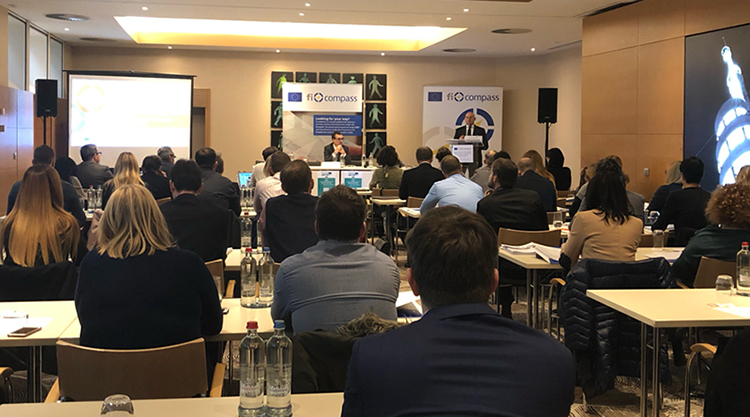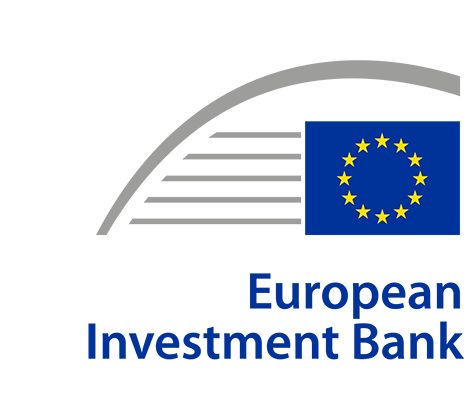Energy efficiency and renewable energy financial instruments for managing authorities – FIRECE project
Overview

fi-compass commenced its event-related activities in 2019 with the workshop ‘Energy efficiency and renewable energy financial instruments for managing authorities – FIRECE project’ that took place on 17 and 18 January 2019 in Brussels, Belgium.
Over 50 representatives from managing authorities, national public banks and institutions (NPBIs) and other stakeholders involved in the FIRECE project attended the event. The FIRECE project aims at improving the capacities of the public sector and related entities to plan territorially based low-carbon strategies in the framework of Regional Energy plans, supporting the low-carbon energy transition of traditional industrial sector to meet the regional energy saving targets defined according to EU and national legislation. The project is being undertaken under the Interreg Central Europe programme and includes partners from Austria, Croatia, Czech Republic, Germany, Hungary, Italy and Poland.
Axel Badrichani, Deputy Head of Financial Instruments and International Financial Institutions Relations Unit, Directorate-General for Regional and Urban Policy, European Commission and Tiziana Apollonia de Nittis, Emilia-Romagna Region, Italy opened the workshop on day 1 and introduced the objectives of the event. Bruno Robino, Head of fi-compass, acted as the moderator during the workshop.
Day 1 of the workshop focused on designing and implementation of ESIF financial instruments for energy efficiency and renewable energy sources in the 2014-2020 programming period. Axel Badrichani explained to participants the role of financial instruments in Cohesion Policy and benefits of using this delivery mechanism for the European Structural and Investment Funds (ESIF). He also shared with participants key messages from the latest annual summary report of the use of financial instruments. The experts from the fi-compass team explained to participants in detail the financial instruments products, implementation options as well as possibilities to combine ESIF financial instruments with other forms of support such as grants and the European Fund for Strategic Investments (EFSI). Furthermore, the financial instrument in Lithuania for residential apartment buildings was presented, which has used co-financing from the European Regional Development Fund (ERDF) to help apartment owners to invest in improving the energy efficiency of their homes. A short video about this instrument can be found here.
The workshop continued on day 2 with a wide spectrum of topics related to Energy Performance Contracting (EPC) and Energy Service Companies (ESCOs), including sessions on the Eurostat-EIB Guidance on treatment of EPC in government accounts and how to finance EPC with ESIF financial instruments and grants. Moreover, the fi-compass experts shared with participants a number of relevant case studies, including:
- The ELENA project implementing a large investment programme improving energy performance of public buildings through EPC in the city of Ljubljana, Slovenia;
- The national EPC programme supported by ESIF grants in Slovenia;
- The London Energy Efficiency Fund (LEEF) financing EPC projects; and
- The energy efficiency scheme for the health sector (MARTE) making EPC possible for comprehensive renovation including renewable energy sources using EU Funds in the Region of Marche, Italy.
During both workshop days participants used the opportunity to exchange with experts from the European Commission and the fi-compass team as well as with fellow participants from other Member States and regions. This included sharing practical experiences and peer-to-peer discussions on the potential and challenges for the use of ESIF financial instruments supporting energy efficiency and renewable energy sources.
| Title | Speakers | ||
|---|---|---|---|
| |
fi-compass platform and advisory support |
Bruno Robino, Head of fi-compass, European Investment Bank |
|
| |
ESIF financial instruments: setting the scene |
Axel Badrichani, Deputy Head of Financial Instruments and International Financial Institutions Relations Unit, Directorate-General for Regional and Urban Policy, European Commission |
|
| |
ESIF financial instruments: setting the scene |
Bruno Robino, Head of fi-compass, European Investment Bank |
|
| |
Ex-ante assessment process |
Anna Zurek, Financial Instruments Advisor, European Investment Bank |
|
| |
Overview of different structures and characteristics of financial instruments |
Bruno Robino, Head of fi-compass, European Investment Bank |
|
| |
Implementing options – applicable regulatory framework to financial instruments |
Anna Zurek, Financial Instruments Advisor, European Investment Bank |
|
| |
Combination of financial instruments with other forms of support |
Desmond Gardner, Financial Instruments Advisor, European Investment Bank |
|
| |
Off-the-shelf financial instrument for energy efficiency |
Desmond Gardner, Financial Instruments Advisor, European Investment Bank |
|
| |
Case study from Lithuania |
Desmond Gardner, Financial Instruments Advisor, European Investment Bank |
|
| |
Final remarks and conclusions |
Bruno Robino, Head of fi-compass, European Investment Bank |
|
| |
Introduction to Energy Performance Contracting (EPC) and Energy Service Companies (ESCOs) |
Robert Pernetta, Financial Instruments Advisor, European Investment Bank Laurent Bender, Financial Instruments Advisor, European Investment Bank |
|
| |
EPC market in the EU |
Robert Pernetta, Financial Instruments Advisor, European Investment Bank Laurent Bender, Financial Instruments Advisor, European Investment Bank |
|
| |
EPC arrangements – main features and provisions |
Robert Pernetta, Financial Instruments Advisor, European Investment Bank Laurent Bender, Financial Instruments Advisor, European Investment Bank |
|
| |
Eurostat-EIB guidance on treatment of EPC in government accounts |
Robert Pernetta, Financial Instruments Advisor, European Investment Bank Laurent Bender, Financial Instruments Advisor, European Investment Bank |
|
| |
Financing EPC with ESIF grants and financial instruments |
Robert Pernetta, Financial Instruments Advisor, European Investment Bank Laurent Bender, Financial Instruments Advisor, European Investment Bank |
|
| |
Technical assistance available for EPC implementation |
Robert Pernetta, Financial Instruments Advisor, European Investment Bank Laurent Bender, Financial Instruments Advisor, European Investment Bank |
|
| |
EPC case studies |
Robert Pernetta, Financial Instruments Advisor, European Investment Bank Laurent Bender, Financial Instruments Advisor, European Investment Bank |

